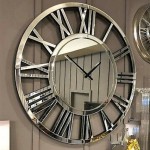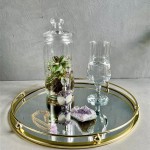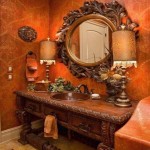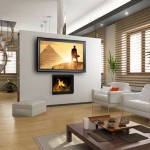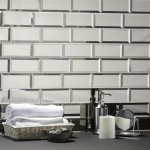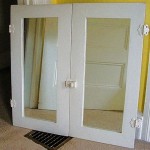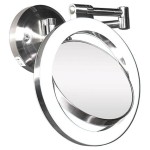What Adhesive To Use For Mirror Tiles: A Comprehensive Guide
Selecting the appropriate adhesive for mirror tiles is crucial for ensuring a secure, long-lasting, and aesthetically pleasing installation. The adhesive not only holds the tiles in place but also protects the mirrored backing from damage caused by reactions with certain chemicals. Inappropriate adhesive selection can lead to delamination, discoloration, or even complete failure of the installation. This article provides a detailed overview of the various adhesive types suitable for mirror tiles, factors to consider when choosing an adhesive, and best practices for application.
Understanding the Risks of Incompatible Adhesives
Mirror tiles, unlike standard ceramic or porcelain tiles, possess a delicate silvered backing that is vulnerable to chemical attack. Many common construction adhesives contain solvents, acids, or alkalis that can react with this silver coating, causing it to degrade. This degradation can manifest as dark spots, streaks, or a clouding effect visible through the glass. Furthermore, some adhesives may shrink excessively as they cure, placing undue stress on the tiles and potentially leading to cracking or detachment. It is therefore imperative to use an adhesive specifically formulated for mirror installation to mitigate these risks.
The specific chemical composition of an adhesive plays a significant role in its suitability for mirror tiles. Adhesives containing acetic acid, for example, are particularly harmful to the silvering. Similarly, adhesives with high solvent content can penetrate the protective coatings on the back of the mirror and cause damage. Understanding the potential chemical interactions between the adhesive and the mirror backing is the first step in selecting a compatible product.
Beyond the chemical composition, the physical properties of the adhesive also matter. An adhesive that cures too rigidly can be problematic, especially in areas with fluctuating temperatures or humidity. Changes in these environmental conditions can cause the substrate to expand and contract, placing stress on the rigid adhesive bond. A more flexible adhesive can accommodate these movements without compromising the integrity of the installation.
Types of Adhesives Suitable for Mirror Tiles
Several types of adhesives are specifically formulated for use with mirror tiles, each offering different advantages and disadvantages. Selecting the best option depends on the specific application, the type of substrate, and the desired level of performance.
Mirror Mastic: Mirror mastic is a common choice for adhering mirror tiles to various surfaces. It is typically a solvent-based or water-based adhesive designed to be chemically inert and non-corrosive to the silver backing of mirrors. High-quality mirror mastic provides a strong, permanent bond while minimizing the risk of damage. When using mirror mastic, it’s crucial to ensure proper ventilation during application, especially with solvent-based varieties, and to follow the manufacturer's instructions regarding application thickness and curing time.
Mirror mastic’s consistency allows for easy application with a notched trowel or a caulking gun, depending on the product. The notched trowel method is generally preferred for larger tiles or when applying adhesive across a larger area, as it helps to ensure even distribution and prevents air pockets. For smaller tiles or detailed work, a caulking gun offers greater precision and control.
Neutral Cure Silicone Adhesives: Neutral cure silicone adhesives are another excellent option for mirror tiles. Unlike acetic acid-based silicone sealants, neutral cure silicones do not release corrosive byproducts during curing, making them safe for use with mirrors. These adhesives offer good flexibility and water resistance, making them suitable for bathrooms and other areas exposed to moisture. They typically have excellent adhesion to a variety of surfaces, including glass, ceramic, and metal. Prior to application, ensure the substrate is clean, dry, and free from any contaminants that could compromise the bond. It’s crucial to use a type that explicitly states it for mirror applications as not all neutral cure silicones are suitable for mirrors.
The flexibility of neutral cure silicone adhesives makes them a good choice for installations where some movement or vibration is expected. This is particularly important in areas prone to seismic activity or in buildings with significant structural movement. The silicone's elasticity allows it to absorb these movements without cracking or losing its bond.
Construction Adhesives (Specific Formulations): Some construction adhesives are formulated specifically for use with mirrors. These adhesives are designed to be non-reactive with the mirror's silver backing and provide a strong, durable bond. It is vital to carefully read the product label to confirm that the adhesive is specifically approved for mirror installation. General-purpose construction adhesives should be avoided unless explicitly stated to be safe for mirrors, as they may contain chemicals that can damage the reflective surface.
These specialized construction adhesives often offer superior bonding strength compared to mirror mastic or silicone adhesives. They are particularly useful for larger mirror installations or in situations where a high level of structural integrity is required. However, they may also be less flexible than silicone adhesives, which should be considered when selecting the appropriate adhesive for the application.
Factors to Consider When Choosing an Adhesive
The selection of the optimal adhesive for mirror tiles requires careful consideration of several factors, including the substrate material, the size and weight of the tiles, the environmental conditions, and the desired aesthetic outcome.
Substrate Material: The type of surface to which the mirror tiles will be adhered significantly influences the choice of adhesive. Porous surfaces like drywall or plaster require adhesives with good grab and gap-filling properties, while non-porous surfaces like glass or metal may require adhesives that provide a strong initial tack. It's essential to prepare the substrate properly by cleaning it thoroughly and removing any loose particles or contaminants. Priming the surface can also improve adhesion, particularly on porous substrates.
When applying mirror tiles to painted surfaces, it's crucial to ensure that the paint is well-adhered to the underlying substrate. Loose or flaking paint can compromise the bond between the adhesive and the wall, leading to failure. In such cases, it may be necessary to remove the old paint and apply a fresh coat of primer before installing the mirror tiles.
Tile Size and Weight: Larger and heavier mirror tiles require adhesives with greater bonding strength and holding power. Using an insufficient adhesive can result in the tiles sliding or detaching from the surface, particularly during the curing process. In some cases, it may be necessary to provide temporary support for the tiles while the adhesive fully cures to prevent movement.
For very large or heavy mirror tiles, mechanical fasteners, such as clips or screws, may be used in conjunction with adhesive to provide additional support and security. These fasteners should be discreetly positioned to minimize their visibility and avoid detracting from the overall aesthetic appearance.
Environmental Conditions: The environmental conditions in which the mirror tiles will be installed also play a critical role in adhesive selection. In areas with high humidity or frequent exposure to water, such as bathrooms or showers, it's imperative to use a waterproof or water-resistant adhesive to prevent moisture from penetrating the bond and causing damage. Similarly, in areas with fluctuating temperatures, a flexible adhesive is recommended to accommodate thermal expansion and contraction.
In outdoor applications, it's crucial to choose an adhesive that is specifically formulated for exterior use and can withstand exposure to sunlight, rain, and extreme temperatures. These adhesives typically contain UV inhibitors to prevent degradation from sunlight and are formulated to maintain their bond strength under a wide range of environmental conditions.
Aesthetic Considerations: The adhesive should not be visible through the glass, and it should not discolor over time. Some adhesives may yellow or darken with age, which can detract from the appearance of the mirror tiles. Choosing a clear or neutral-colored adhesive can help to minimize this issue. Additionally, it's essential to ensure that the adhesive does not bleed or seep out from the edges of the tiles, as this can create an unsightly mess.
When using adhesive with a caulking gun, it's important to apply a consistent bead of adhesive to prevent gaps or unevenness. Excess adhesive should be carefully wiped away with a damp cloth to avoid leaving residue on the surface of the tiles. In some cases, it may be necessary to use masking tape to protect the surrounding surfaces from adhesive spills.
Adhesive plays a vital role in the installation of mirror tiles, dictating the aesthetics, durability and longevity of the installation. By carefully consider the factors outlined in this article, one can select the appropriate adhesive for a safe, reliable and visually appealing result.

40pcs Self Adhesive Square Glass Mirror Tiles Wall Sticker Home Décor On Onbuy

Diy Bathroom Decor Ideas Self Adhesive Mirror Wall Tiles Accent Design Para Banheiro De Interiores Azulejo

Mosaic Self Adhesive Mirror Tiles Baker Ross

Leaveforme 12pcs Wall Mirror Tiles Square Sticky Shatterproof Self Adhesive Removable Dressing Glass Mounted Full Length For Daily Use Com

18pack Self Adhesive Acrylic Mirror 8 X Inch Tiles Decor Fra

Mirror Tiles Stickers Sheets 12pcs Self Adhesive Acrylic Thick Shatterproof For Home Bedroom Living Room Bathroom Wall Ca

4pcs 20x20cm Mirror Tiles Wall Sticker Square Self Adhesive Stick On Home Decor

Self Adhesive Mirror Tiles Wall Mirrors Glass Square 9pcs 1010inch

Self Adhesive Glass Mirror Mosaic Tiles 1652 Pieces Of 5mm

30x30cm Large Mirror Tiles Wall Sticker Square Self Adhesive Stick On Diy Home

